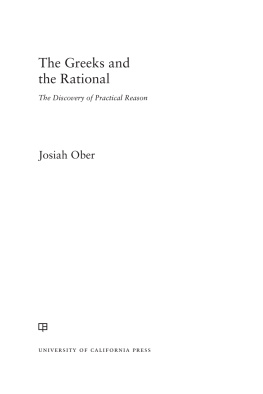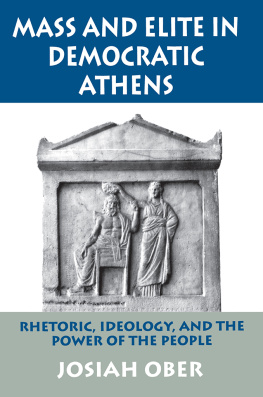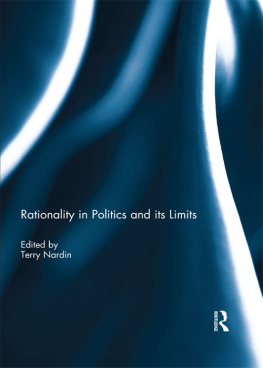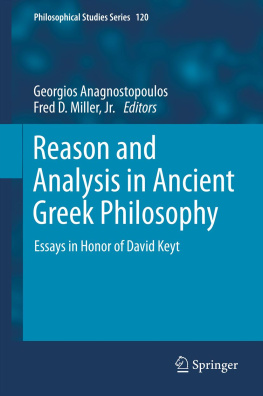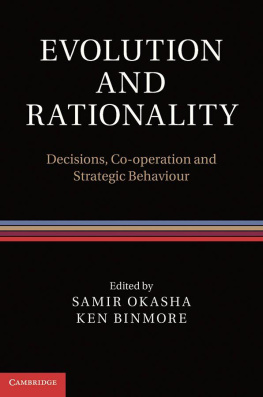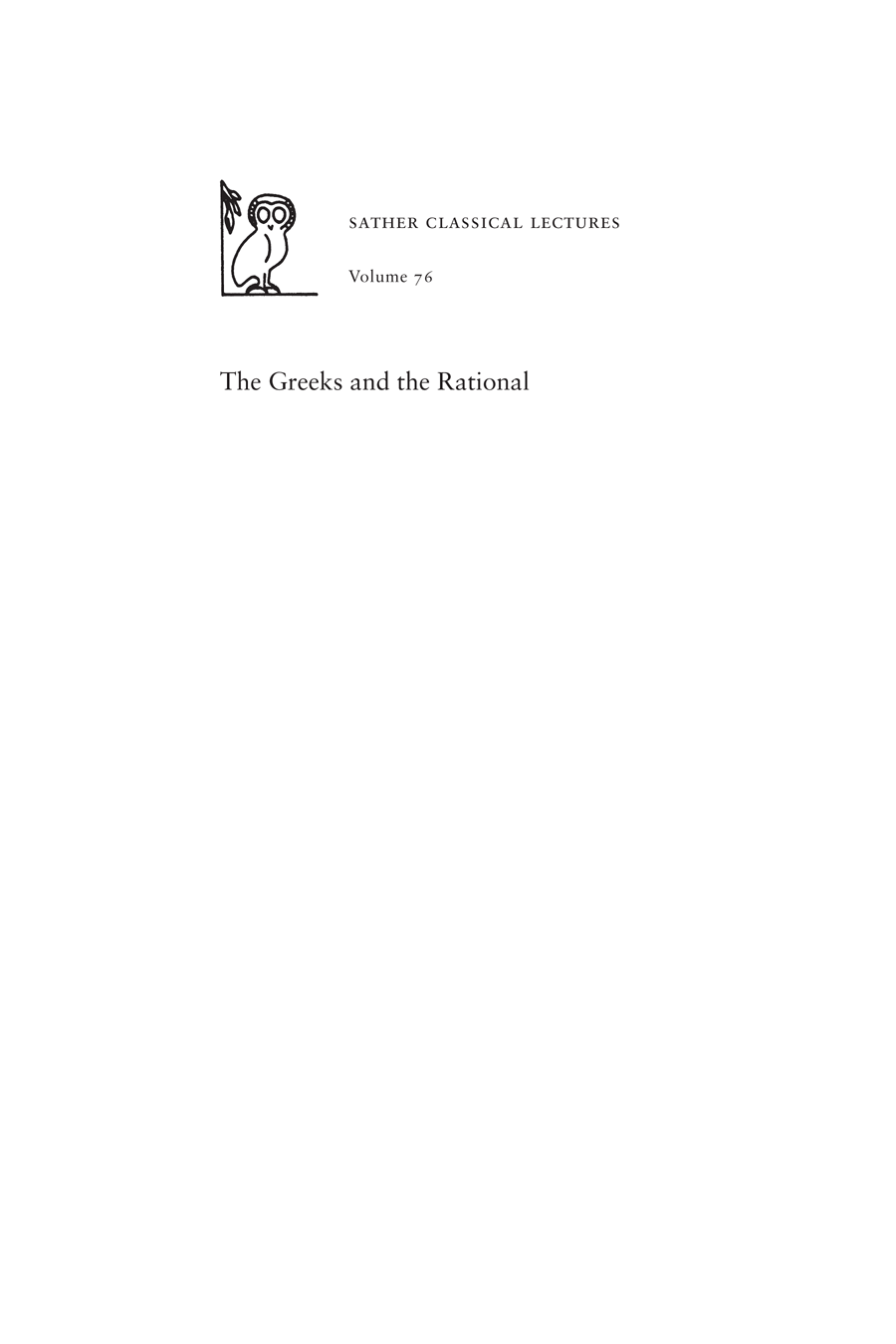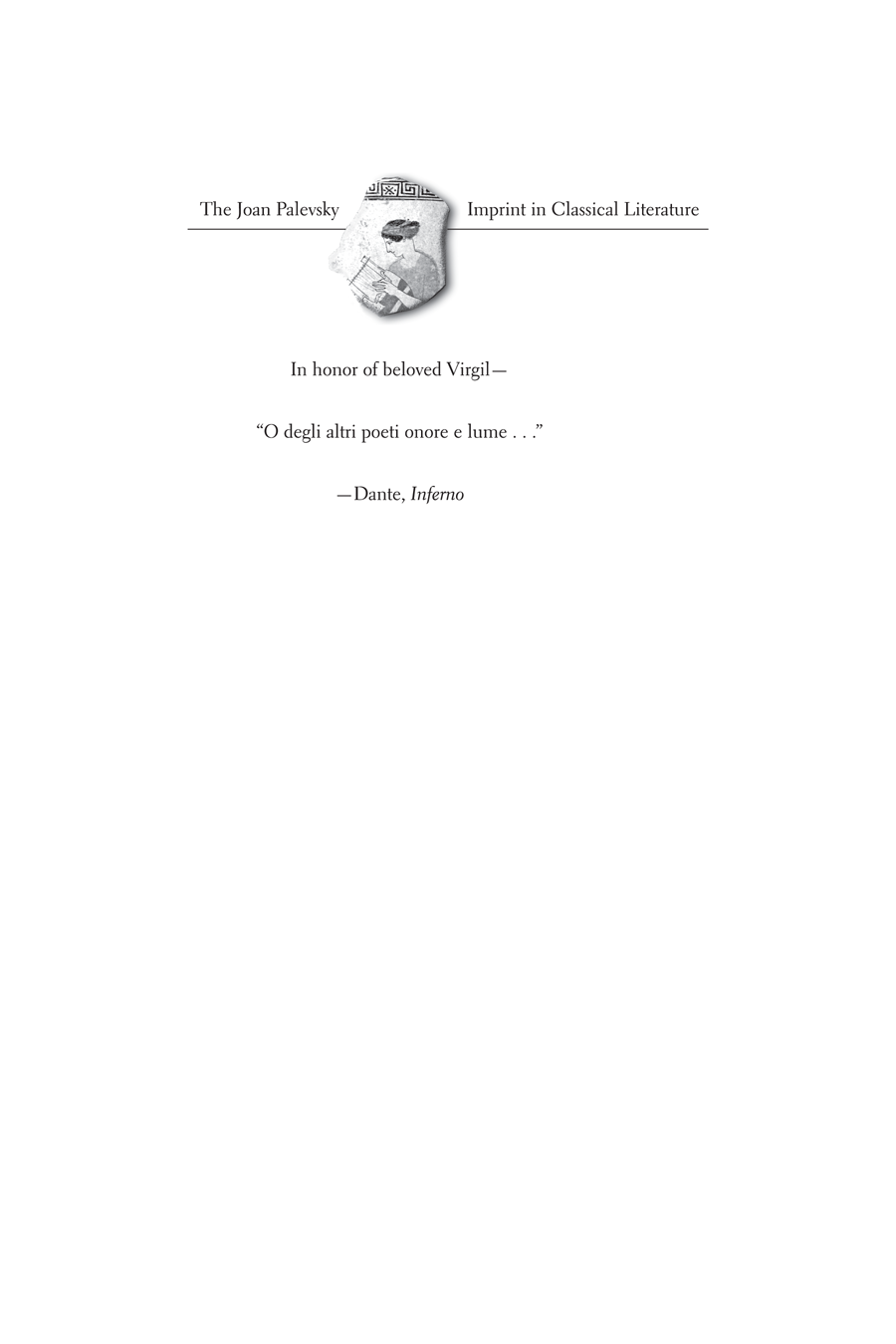Preface
This book addresses a problem of deep and abiding concern to humanists and social scientists, legislators, and citizens: Cooperation is a choice, not a given. It is a choice that must be made time and again if people are to live well, together. The problem arises because what is believed by rationally self-interested individuals, or by like-minded groups, to be best for themselves may not be good for others. Under the right conditions, enlightened self-interest can foster mutually beneficial forms of cooperation. But the selfish pursuit of individual and factional interests can also be detrimental to the welfare of others, even a threat to the survival of the community.
My hypothesis is that ancient Greek theorists and lawmakers recognized the question of why and how people choose to cooperate as basic. They saw that it must be answered at the level of the individuals motives for action, because individuals are the atomsthe irreducible, fundamental partsof social order. Inquiries by Greek thinkers into the rationality of choice-making led to new theories of motivation, action, and ethics, to new approaches to teaching and learning, and to the design of new institutions by political entrepreneurs. In brief, Greeks discovered practical reason and the discovery was quickly put to practical use.
Similar intuitions lie at the heart of contemporary formal theories concerned with the microfoundations of social order. Those theories have been prominent in the social sciences ever since the publication of John von Neumann and Oskar Morgensterns landmark Theory of Games and Economic Behavior in 1944. Over the course of the next several decades, a body of work on rational choice-making posed a range of questions about cooperation and proposed mathematical methods for answering them. Strategic reasonthe logic of decisions made by rational agents seeking their desired ends under conditions of uncertaintybecame central to the field of economics. Following the development in the early 1980s of new techniques for illustrating games in extensive form, rational choice theory was integrated into political science.
The ideas of modern theorists on strategic reasoning are much in evidence in this book, although the math is not. I postulate that Greek writers anticipated some of the ideas about motivation and expectation that underpin modern choice theory and employed them in building theories and applying theory to practice. If that is correct, critics of rational choice should be wary of discounting it as a contingent artifact of neoclassical economics or military strategy in a nuclear age. Moreover, I contend that applying certain of the characteristic tools of modern choice theory to ancient texts aids in excavating a lost foundation-stone in the grand edifice of premodern social thought and practice. That foundation could be repurposed for modern political theory. If those assertions are correct, humanists who reject rational choice as foreign to humanistic inquiry risk impoverishing their own fieldsas do choice theorists who slight literature, history, and moral philosophy.
The book claims to offer something of value to classicists, historians, and philosophers, to political theorists, economists, and empirical political scientists. I seek to validate that claim, first, by demonstrating the payoffs for students of history, philosophy, and literature: By establishing the unexpectedly close relationship between Socratic and sophistic theories of motivation and action, and between specific passages in historical, philosophical, and poetic texts; by offering new insights into Greek ideas about kingship, constitutional development, and state performance; by demonstrating the role of rational acquiescence to domination and its limits in interstate relations; by recovering the firm philosophical grasp of rational economic behavior and the connection between expected utility and human flourishing. Next, I attempt to show social scientists that the study of literary texts complements formal approaches to rationality, offering deeper insight into the role of rationality in complex choice situations. Finally, I seek to demonstrate that the Greek engagement with instrumental and ethical rationality provides a model for conjoining normative and positive political theory.
At this point readers are entitled to pose two questions along the following lines: Suppose we grant, for the sake of the argument, that there is benefit to humanists and social scientists of reading ancient texts in a framework set by modern choice theory. The Greek texts have been around for a very long time, and the basic insights of formal theory have been available for two generations. So, is there really anything new and true left to say? And if there are still benefits to be gained, why is that? In the introduction, I offer a survey of scholarship that applies game theory and related approaches to classical texts. The brevity of that survey answers the first question: Yes, there is indeed much to say. Yet it also sharpens the second question: Why is that so? My answer, sketched below, is that three separate trends have conspired to impede interdisciplinary work along the lines I am proposing here. In brief: In the mid-twentieth century, while the groundwork was being laid for the rational choice revolution in social science, the study of ancient Greek thought and practice was likewise revolutionized. But the revolutionaries in the two fields were headed in opposite directions.
The first trend: In 1951 E.R. Dodds, Regius Professor of Greek at the University of Oxford, published The Greeks and the Irrational. The book was based on his Sather Classical Lectures, delivered at the University of California at Berkeley in the autumn of 1949. That was just seventy years before my own Sather Lectures, on which this book is based. I first read Dodds seminal study of irrationality as a student, about a quarter-century after its first publication; my advisor, Chester G. Starr, listed it among the most important contributions to Greek history of the twentieth century. And indeed, forty-five years later, Dodds work is still in print and has proved enduringly popular and influential. Although, as Robert Parker (2020) has noted, Dodds book is no longer often cited by professional classicists as an authoritative source, it played a leading role in reorienting classical history towards the study of phenomena that fall outside the ambit of the rational.

